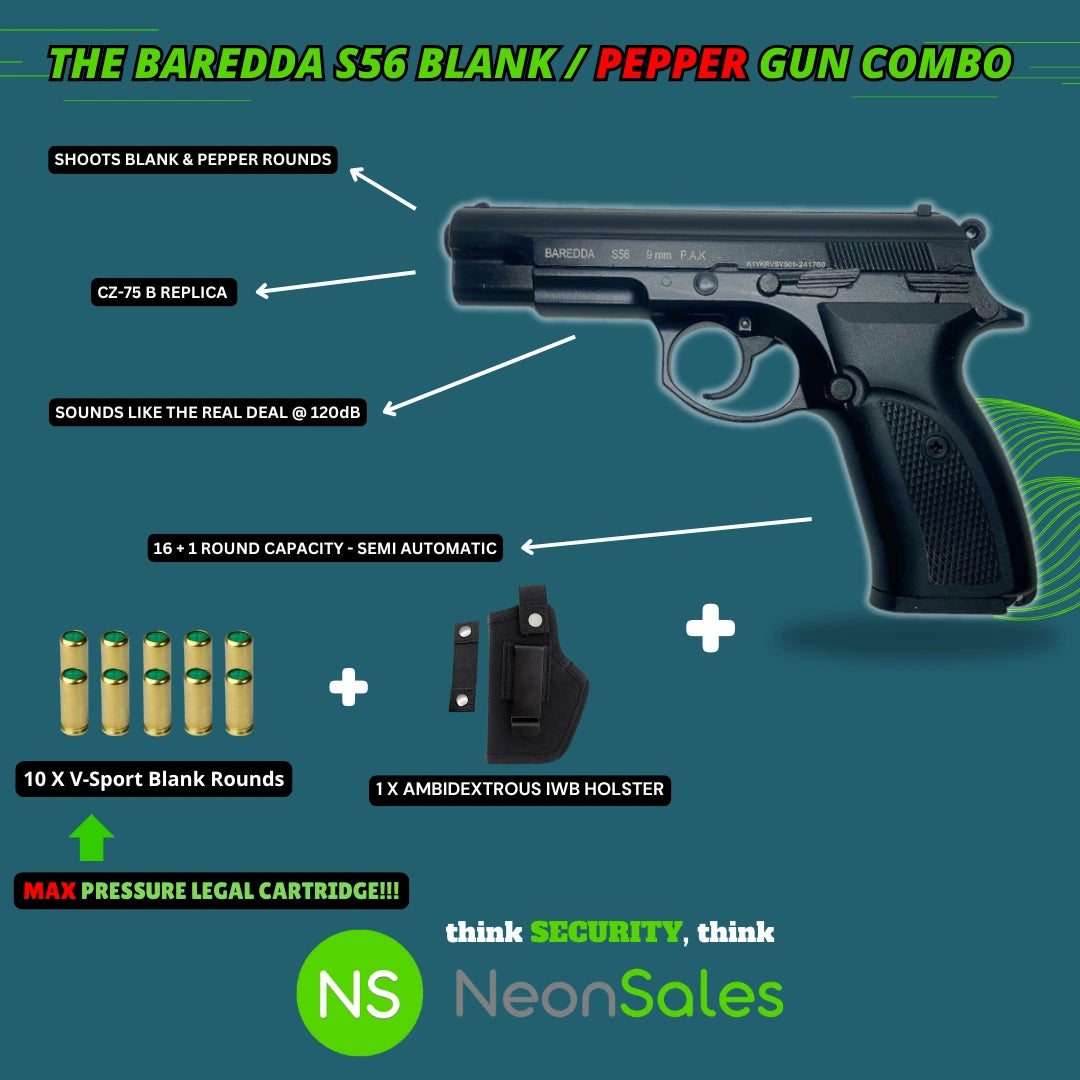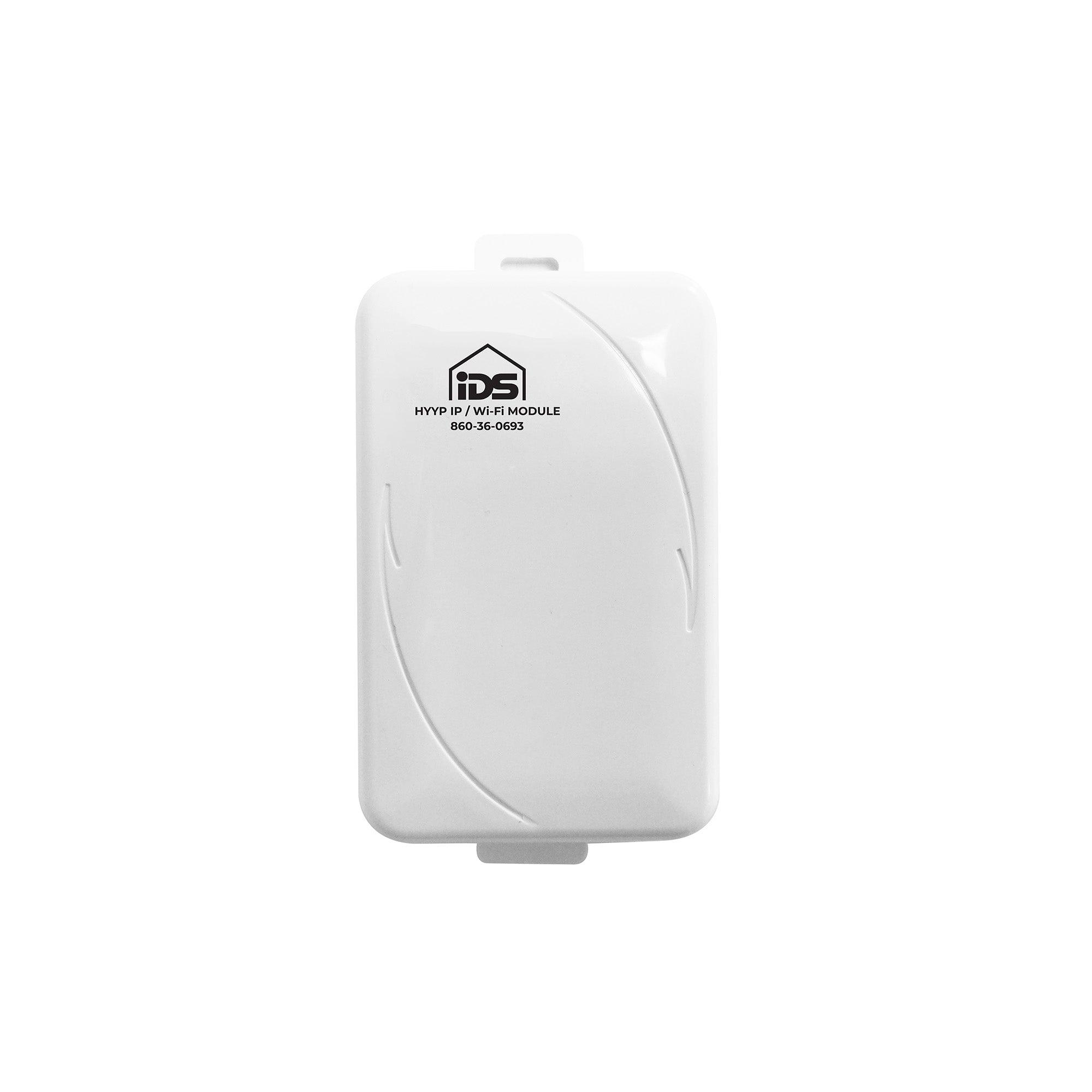Ruike L51-B Criterion Collection, 3.35" 12C27 Plain Blade, Black G-10 Handle
Featuring the largest blade in Criterion Collection series and more robust tools the L series is fit for the most severe outdoor conditions.
Ruike is a relative new-comer to the budget and mid-priced knife market. They are quickly earning a reputation for high value folding knives, so much so that Boker has outsourced with them to produce their Tech-Tools line of multi-function knives in the traditional Swiss Army style. Ruike also produces their own versions of these knives in a multitude of configurations. Today we will be looking at the LD-51 from Ruike’s full size Trekker series.
These tools all feature textured G10 scales and a locking blade with a thumb stud for maximum grip and one handed operation. The Trekker line, with its four inch frames, fill a niche between the standard three inch Swiss Army knives and four inch pliers based folding multi-tools for users who want more effective tools that can be accessed and used more conveniently.
The Ruike Trekker LD-51 is a full sized, five layer Swiss style tool with an impressive 23 tools. Just like every multi-function knife Ruike offers, it has textured G10 scales for a much more positive grip than its Swiss style competition. Plus, with a body that is an inch longer than the standard Victorinox tool, it fills the hand much better and allows for bigger, more useful tools to be included.
While you do not get the sheer number of functions that the biggest, most dense multi-tools offer, the proper blade, superb saw, and excellent scissors all put to shame the ones found on such offerings. Additionally, the LD-51 sneaks in a corkscrew and tweezers that are rarely included in smaller Swiss and folding stile multi-function tools.
- Large Blade – 3.3 inches of 12C27 Sandvik stainless steel
- Pliers – These pliers are smaller and more rounded than the pliers found on most full size multi-tools. They do not provide as good a grip and tend to wear on the items being turned, but they will get the job done most of the time.
- Wire cutter
- Fishing line pliers
- Scissors – These are among the best spring loaded scissors that can be found on a multi-tool. They cut exceptionally well and are a size larger than can be found elsewhere.
- Wire bender
- Bottle opener – There is no can-opener on this tool.
- Large flat head 6.5mm screwdriver.
- Wire stripper/bender.
- Wood Saw – This excellent 4 inch double row wood saw is a full inch longer than the three inch saws found on most other multi-tools. Plus, inch for inch, it cuts as well as the best of them.
- Facer – Although useful in some situations, the edge here makes opening the tool a bit tricky as it covers most of the area you would grab to lift the tool.
- Awl – This and the Philips bit are a bit challenging to deploy as you must deploy a tool opposite of them to make room and then use their stiff flipper tabs to deploy them.
- Wire stripper
- Spoke wrench
- Reamer with sewing eye
- Philips Screwdriver – This is clearly a step up from a two dimensional flat head bit found on many multi-function knives as it works well on new Philips head screws. However, it is still is not ideal for turning worn or partially stripped screw heads as the teeth are not all that deep.
- Belt cutter – This tool opens to a 45 degree angle, and with a tooth pattern different than the dedicated saw, it gives a solid second option to cut various materials.
- Small flat head screwdriver – This second, smaller flat head screwdriver here is almost useless. The tip is rounded and at a 45 degree angle to the tool. On top of that, it sits at the end of a saw that does not lock and rests above your fingers as you grip the Trekker. This is needlessly dangerous design, and its use should be avoided if possible.
- Pocket clip – The clip is located in a poor spot for pocket carry as it holds the LD-51 in its second widest dimension in the pocket. A better spot might have been on the back locking side to keep a slimmer profile in the pocket.
- Corkscrew – The wine bottle opener works flawlessly, though it does protrude slightly outside of the frame while folded.
- Glass breaker
- Lanyard loop
- Tweezers – These tweezers have more flex than I would like, but with some effort still work quite well.
The 3.3 inch high, saber grind, drop point blade is made of Sandvik 12C27 and features a single thumb stud positioned for one handed, right hand opening. The real selling point of the LD-51 is that it has a liner lock on the main cutting blade, a feature found very rarely on multi-tools of any kind. Out of the box, the blade was moderately sharp and would easily cut paper, however it was not shaving sharp as it would only cut arm hair with a very steep angle and somewhat heavy pressure. Despite the short belly, the blade slices quite well as the blade stock is not overly thick.
The long narrow profile makes food prep a snap, especially spreading condiments. It will also tackle small outdoor tasks with ease. The thumb ramp, textured G10, and hand-filling handle make wood working easier than with other multi-tools. This combination allows for great leverage on tasks such as carving notches and making feather sticks.
The Blade
The 3.3 inch high, saber grind, drop point blade is made of Sandvik 12C27 and features a single thumb stud positioned for one handed, right hand opening. The real selling point of the LD-51 is that it has a liner lock on the main cutting blade, a feature found very rarely on multi-tools of any kind. Out of the box, the blade was moderately sharp and would easily cut paper, however it was not shaving sharp as it would only cut arm hair with a very steep angle and somewhat heavy pressure. Despite the short belly, the blade slices quite well as the blade stock is not overly thick.
The long narrow profile makes food prep a snap, especially spreading condiments. It will also tackle small outdoor tasks with ease. The thumb ramp, textured G10, and hand-filling handle make wood working easier than with other multi-tools. This combination allows for great leverage on tasks such as carving notches and making feather sticks.
Edge retention is in line with other Swiss style multi-function knives. Sandvik 12C27 is reportedly very similar to the steel used in Victorinox knives, and also boasts excellent corrosion resistance. That is to say, it holds its edge in line with budget steels like 8Cr13MoV. While this is a compromise compared to the blade on a dedicated $70 folding knife with a true mid-range steel like Sandvik 14C28N or VG-10, it is in line with most all of its competition.
Sharpening the LD-51 will be easy with traditional hones or rod sharpening systems as the blade features a sharpening choil and a long straight blade. Although there is a long flat on the top portion of the blade that would normally be ideal for clamping style continuous angle sharpening systems, the fact that the blade is on the outside of a wide heavy tool makes it very clumsy to use on one. These systems require constant flipping of the knife, and although it is certainly possible, the process just feels awkward when applied here.
Deployment
Deployment of the knife blade is unassisted and requires more force than most folding knives and catches in a few spots as it travels. However, with a vigorous wrist flick the knife will deploy without trouble. Lock up is good, but there is a little play in all four directions. Most of the tools on the Trekker deploy more in line with the tools found on other multi-tools, with focused two handed effort. The tools move smoothly enough, but as with the knife blade the locking surfaces are rounded over squares, so they catch at one or two points in their travel.
Most of these tools are deployed by the use of a nail nick. However the awl and Philips head screw driver deploy with a flipper tab, and the saw and corkscrew both flip out by lifting under their ends. These all work practically enough, but they just do not have the buttery smoothness Victorinox products are famous for. That said, they all work much easier than the typical knock off multi-tools that are far better at abusing finger nails than actually deploying their tools. Lock up on most of these tools is quite good for slip joint tools. They have a very strong spring, and the square locking surfaces that hinder deployment make the lock up better than on most Victorinox tools.
Handle and Ergonomics
Let’s get this out of the way: the Ruike Trekker is a brick in the hand. Though to be fair most large multi-tools are. The liners are all steel making for a very strong but heavy tool. In contrast, Victorinox products save some weight by using aluminum to great effect. The four inch handle, with it’s almost square profile, is similar in diameter to a full size hand tool like a hammer or saw, and grips well for it.
During hard use, there are some hot spots around the edges of the G10 scales as they are not particularly well rounded over. The tip down only pocket clip is also a hot spot when using the larger tools as they are all located on the same end of the Trekker as the pocket clip. Though to be fair, the vast majority of multi-tools are a mess of right angles, slick surfaces, and exposed steel edges. Fitting the maximum amount of functions into a portable tool comes with real compromises, and creature comfort is almost always the first to go. With that in mind the Trekker is still more comfortable in hand than the vast majority of its competition.
As stated several times already in this review, the Trekker shines over its competition in that it has textured G10 scales with cut outs around the edges for enhanced grip. Most multi-tools use smooth scales or bare steel that can be unwieldy with wet hands. The Trekker on the other hand is secure in most any condition.
Pocket Manners
The Trekker is too wide and heavy for easy pocket carry. That is to say, it is more suited for a belt, bag, or glove box. At nearly 10 ounces, and a wide 10 ounces at that, it just feels ponderous in your pocket as you go about your day. The tip down only pocket clip forces the tool to sit in the pocket in its second widest orientation. While you can rotate the Trekker in your pocket so that it sits with the wide back to your body, it rarely stays flat. Your pants pull the LD-51 around so that the corner is pushing into your leg as you walk.
I feel that having the clip tip up and mounted on the back of the tool might have been a more ideal placement. It would ride more flat to the body and eliminate a hot spot all at once. That said, tucked into a belt pouch, or more ideally in the pocket of a bag, this tool carries as well if not better than a full size multi-tool.
Fit and Finish
The fit and finish on the Trekker is generally quite impressive. The tools all have a beautiful, near mirror polish. The logos are all crisp and black. My favorite aesthetic touch is the stone wash on the slip joint springs. It has a wonderful warm finish to it, and it gives a beautiful contrast to the mirror finish on the tools. Despite these attractive touches, trouble comes in with the brick pattern on the G10.
|
Brand |
Ruike |
|
Colour |
silver, black |
|
Can be engraved |
Yes |
|
Warranty on materials and manufacturing defects |
5 year |
|
Series |
L |
|
Country of origin |
China |
|
Blade height |
1.9 cm |
|
Blade length |
8.1 cm |
|
Cutting edge length |
8.1 cm |
|
Blade thickness |
2.7 mm |
|
Closed length |
1.9 cm |
|
Total length |
19.8 cm |
|
Weight |
155 g |
|
Material handle |
G10 |
|
Type of steel |
Sandvik 12C27 |
|
Hardness |
59 HRC |
|
Finish blade |
polished |
|
Right or left-handed |
symmetrical |
|
Blade shape |
drop point |
|
Type of edge |
plain edge |
|
Tools |
awl, corkscrew, cutting hook, glass breaker, keyring, knife, saw, scissors, scraper, screwdriver, small screwdriver, wire stripper, wire bender |
|
Opening system |
nail nick |
|
Type |
Swiss army knife |
|
Pocket clip |
yes, tip-down (right) |
|
Pocket clip position |
tip-down |
|
Pocket clip side |
right |
|
Lock |
slipjoint |
|
Can be opened with one hand |
No |
|
Sharpening angle |
20º |
|
Way of sharpening |
flat, Secondary V-edge |
|
Number of tools |
19 |
Product review video can be viewed here:
Ruike L51-B Criterion Collection, 3.35" 12C27 Plain Blade, Black G-10 Handle
Featuring the largest blade in Criterion Collection series and more robust tools the L series is fit for the most severe outdoor conditions.
Ruike is a relative new-comer to the budget and mid-priced knife market. They are quickly earning a reputation for high value folding knives, so much so that Boker has outsourced with them to produce their Tech-Tools line of multi-function knives in the traditional Swiss Army style. Ruike also produces their own versions of these knives in a multitude of configurations. Today we will be looking at the LD-51 from Ruike’s full size Trekker series.
These tools all feature textured G10 scales and a locking blade with a thumb stud for maximum grip and one handed operation. The Trekker line, with its four inch frames, fill a niche between the standard three inch Swiss Army knives and four inch pliers based folding multi-tools for users who want more effective tools that can be accessed and used more conveniently.
The Ruike Trekker LD-51 is a full sized, five layer Swiss style tool with an impressive 23 tools. Just like every multi-function knife Ruike offers, it has textured G10 scales for a much more positive grip than its Swiss style competition. Plus, with a body that is an inch longer than the standard Victorinox tool, it fills the hand much better and allows for bigger, more useful tools to be included.
While you do not get the sheer number of functions that the biggest, most dense multi-tools offer, the proper blade, superb saw, and excellent scissors all put to shame the ones found on such offerings. Additionally, the LD-51 sneaks in a corkscrew and tweezers that are rarely included in smaller Swiss and folding stile multi-function tools.
- Large Blade – 3.3 inches of 12C27 Sandvik stainless steel
- Pliers – These pliers are smaller and more rounded than the pliers found on most full size multi-tools. They do not provide as good a grip and tend to wear on the items being turned, but they will get the job done most of the time.
- Wire cutter
- Fishing line pliers
- Scissors – These are among the best spring loaded scissors that can be found on a multi-tool. They cut exceptionally well and are a size larger than can be found elsewhere.
- Wire bender
- Bottle opener – There is no can-opener on this tool.
- Large flat head 6.5mm screwdriver.
- Wire stripper/bender.
- Wood Saw – This excellent 4 inch double row wood saw is a full inch longer than the three inch saws found on most other multi-tools. Plus, inch for inch, it cuts as well as the best of them.
- Facer – Although useful in some situations, the edge here makes opening the tool a bit tricky as it covers most of the area you would grab to lift the tool.
- Awl – This and the Philips bit are a bit challenging to deploy as you must deploy a tool opposite of them to make room and then use their stiff flipper tabs to deploy them.
- Wire stripper
- Spoke wrench
- Reamer with sewing eye
- Philips Screwdriver – This is clearly a step up from a two dimensional flat head bit found on many multi-function knives as it works well on new Philips head screws. However, it is still is not ideal for turning worn or partially stripped screw heads as the teeth are not all that deep.
- Belt cutter – This tool opens to a 45 degree angle, and with a tooth pattern different than the dedicated saw, it gives a solid second option to cut various materials.
- Small flat head screwdriver – This second, smaller flat head screwdriver here is almost useless. The tip is rounded and at a 45 degree angle to the tool. On top of that, it sits at the end of a saw that does not lock and rests above your fingers as you grip the Trekker. This is needlessly dangerous design, and its use should be avoided if possible.
- Pocket clip – The clip is located in a poor spot for pocket carry as it holds the LD-51 in its second widest dimension in the pocket. A better spot might have been on the back locking side to keep a slimmer profile in the pocket.
- Corkscrew – The wine bottle opener works flawlessly, though it does protrude slightly outside of the frame while folded.
- Glass breaker
- Lanyard loop
- Tweezers – These tweezers have more flex than I would like, but with some effort still work quite well.
The 3.3 inch high, saber grind, drop point blade is made of Sandvik 12C27 and features a single thumb stud positioned for one handed, right hand opening. The real selling point of the LD-51 is that it has a liner lock on the main cutting blade, a feature found very rarely on multi-tools of any kind. Out of the box, the blade was moderately sharp and would easily cut paper, however it was not shaving sharp as it would only cut arm hair with a very steep angle and somewhat heavy pressure. Despite the short belly, the blade slices quite well as the blade stock is not overly thick.
The long narrow profile makes food prep a snap, especially spreading condiments. It will also tackle small outdoor tasks with ease. The thumb ramp, textured G10, and hand-filling handle make wood working easier than with other multi-tools. This combination allows for great leverage on tasks such as carving notches and making feather sticks.
The Blade
The 3.3 inch high, saber grind, drop point blade is made of Sandvik 12C27 and features a single thumb stud positioned for one handed, right hand opening. The real selling point of the LD-51 is that it has a liner lock on the main cutting blade, a feature found very rarely on multi-tools of any kind. Out of the box, the blade was moderately sharp and would easily cut paper, however it was not shaving sharp as it would only cut arm hair with a very steep angle and somewhat heavy pressure. Despite the short belly, the blade slices quite well as the blade stock is not overly thick.
The long narrow profile makes food prep a snap, especially spreading condiments. It will also tackle small outdoor tasks with ease. The thumb ramp, textured G10, and hand-filling handle make wood working easier than with other multi-tools. This combination allows for great leverage on tasks such as carving notches and making feather sticks.
Edge retention is in line with other Swiss style multi-function knives. Sandvik 12C27 is reportedly very similar to the steel used in Victorinox knives, and also boasts excellent corrosion resistance. That is to say, it holds its edge in line with budget steels like 8Cr13MoV. While this is a compromise compared to the blade on a dedicated $70 folding knife with a true mid-range steel like Sandvik 14C28N or VG-10, it is in line with most all of its competition.
Sharpening the LD-51 will be easy with traditional hones or rod sharpening systems as the blade features a sharpening choil and a long straight blade. Although there is a long flat on the top portion of the blade that would normally be ideal for clamping style continuous angle sharpening systems, the fact that the blade is on the outside of a wide heavy tool makes it very clumsy to use on one. These systems require constant flipping of the knife, and although it is certainly possible, the process just feels awkward when applied here.
Deployment
Deployment of the knife blade is unassisted and requires more force than most folding knives and catches in a few spots as it travels. However, with a vigorous wrist flick the knife will deploy without trouble. Lock up is good, but there is a little play in all four directions. Most of the tools on the Trekker deploy more in line with the tools found on other multi-tools, with focused two handed effort. The tools move smoothly enough, but as with the knife blade the locking surfaces are rounded over squares, so they catch at one or two points in their travel.
Most of these tools are deployed by the use of a nail nick. However the awl and Philips head screw driver deploy with a flipper tab, and the saw and corkscrew both flip out by lifting under their ends. These all work practically enough, but they just do not have the buttery smoothness Victorinox products are famous for. That said, they all work much easier than the typical knock off multi-tools that are far better at abusing finger nails than actually deploying their tools. Lock up on most of these tools is quite good for slip joint tools. They have a very strong spring, and the square locking surfaces that hinder deployment make the lock up better than on most Victorinox tools.
Handle and Ergonomics
Let’s get this out of the way: the Ruike Trekker is a brick in the hand. Though to be fair most large multi-tools are. The liners are all steel making for a very strong but heavy tool. In contrast, Victorinox products save some weight by using aluminum to great effect. The four inch handle, with it’s almost square profile, is similar in diameter to a full size hand tool like a hammer or saw, and grips well for it.
During hard use, there are some hot spots around the edges of the G10 scales as they are not particularly well rounded over. The tip down only pocket clip is also a hot spot when using the larger tools as they are all located on the same end of the Trekker as the pocket clip. Though to be fair, the vast majority of multi-tools are a mess of right angles, slick surfaces, and exposed steel edges. Fitting the maximum amount of functions into a portable tool comes with real compromises, and creature comfort is almost always the first to go. With that in mind the Trekker is still more comfortable in hand than the vast majority of its competition.
As stated several times already in this review, the Trekker shines over its competition in that it has textured G10 scales with cut outs around the edges for enhanced grip. Most multi-tools use smooth scales or bare steel that can be unwieldy with wet hands. The Trekker on the other hand is secure in most any condition.
Pocket Manners
The Trekker is too wide and heavy for easy pocket carry. That is to say, it is more suited for a belt, bag, or glove box. At nearly 10 ounces, and a wide 10 ounces at that, it just feels ponderous in your pocket as you go about your day. The tip down only pocket clip forces the tool to sit in the pocket in its second widest orientation. While you can rotate the Trekker in your pocket so that it sits with the wide back to your body, it rarely stays flat. Your pants pull the LD-51 around so that the corner is pushing into your leg as you walk.
I feel that having the clip tip up and mounted on the back of the tool might have been a more ideal placement. It would ride more flat to the body and eliminate a hot spot all at once. That said, tucked into a belt pouch, or more ideally in the pocket of a bag, this tool carries as well if not better than a full size multi-tool.
Fit and Finish
The fit and finish on the Trekker is generally quite impressive. The tools all have a beautiful, near mirror polish. The logos are all crisp and black. My favorite aesthetic touch is the stone wash on the slip joint springs. It has a wonderful warm finish to it, and it gives a beautiful contrast to the mirror finish on the tools. Despite these attractive touches, trouble comes in with the brick pattern on the G10.
|
Brand |
Ruike |
|
Colour |
silver, black |
|
Can be engraved |
Yes |
|
Warranty on materials and manufacturing defects |
5 year |
|
Series |
L |
|
Country of origin |
China |
|
Blade height |
1.9 cm |
|
Blade length |
8.1 cm |
|
Cutting edge length |
8.1 cm |
|
Blade thickness |
2.7 mm |
|
Closed length |
1.9 cm |
|
Total length |
19.8 cm |
|
Weight |
155 g |
|
Material handle |
G10 |
|
Type of steel |
Sandvik 12C27 |
|
Hardness |
59 HRC |
|
Finish blade |
polished |
|
Right or left-handed |
symmetrical |
|
Blade shape |
drop point |
|
Type of edge |
plain edge |
|
Tools |
awl, corkscrew, cutting hook, glass breaker, keyring, knife, saw, scissors, scraper, screwdriver, small screwdriver, wire stripper, wire bender |
|
Opening system |
nail nick |
|
Type |
Swiss army knife |
|
Pocket clip |
yes, tip-down (right) |
|
Pocket clip position |
tip-down |
|
Pocket clip side |
right |
|
Lock |
slipjoint |
|
Can be opened with one hand |
No |
|
Sharpening angle |
20º |
|
Way of sharpening |
flat, Secondary V-edge |
|
Number of tools |
19 |
Product review video can be viewed here:

















































































































Share and get 15% off!
Simply share this product on one of the following social networks and you will unlock 15% off!